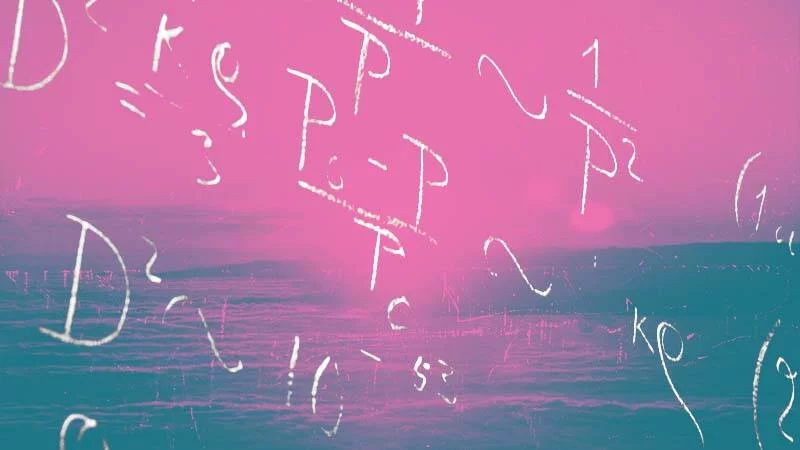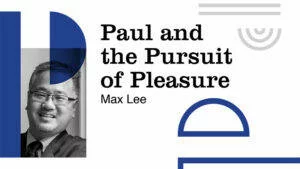Does God break the laws of nature? Having ordained the laws in the first place, God clearly has the ability to do so. And Scripture seems to reveal God breaking such laws in the past, from axe heads that float (2 Kgs 6) to the parting of the Red Sea (Exod 14). Many answers to prayer also have the appearance of divine intervention. How could a theist think otherwise?
Let’s first note that the idea that nature is governed by laws was a seventeenth-century innovation. The ancients and medievals believed that nature is orderly, but they did not attribute that order to laws of nature and so would have posed the question differently. For my part, I believe that Descartes and Newton were correct: there are laws of nature that were ordained by the divine Lawgiver. The question here is whether the Lawgiver is also a Lawbreaker.
Many early-modern thinkers believed that God would not intervene in this way. Leibniz argued that only a lesser deity would need to directly act in creation. We have to adjust and repair artifacts, like clocks, because of our finiteness. Such intervention is a sign of incompetence or limited resources, Leibniz argued, neither of which applies to God.Gottfried W. Leibniz and Samuel Clarke, The Leibniz-Clarke Correspondence: Together with Extracts from Newton’s Principia and Optics, edited by H. G. Alexander (Manchester: Manchester University Press, [1717] 1956), 11–12. A more recent claim is that divine intervention conflicts with science. Physical reality is made up of an unbroken chain of natural causes, we are told, and experiments show that physical effects are only produced by physical causes. Intervention would break the chain of causation and therefore violate the uniformity of nature. Still others worry that the miracle-working God of evangelical theology seems capricious, acting in response to prayers on some occasions but not others. An account The question here is whether the Lawgiver is also a Lawbreaker. of divine action must recognize that God is trustworthy, unlike the arbitrary gods of Greek mythology.John Polkinghorne, Science and Providence: God’s Interaction with the World (Boston, MA: New Science Library, 1989), 24.
One might rightly wonder, however, about the alternative. To reject divine intervention seems more in line with deism than the God described in the Bible. Many scholars working on divine action in the last thirty years agree. The theistic God is “hands-on,” playing an active role in creation. And yet there are limits. God set the laws of nature in place and continues to uphold them. Would it not then be inconsistent for God to violate the laws he previously ordained? Breaking the very processes of nature which God created and constantly maintains would seem to pit God’s special acts against God’s regular action.Robert J. Russell, “Quantum Physics and the Theology of Non-Interventionist Objective Divine Action,” in The Oxford Handbook of Religion and Science, edited by Philip Clayton (New York: Oxford University Press, 2008), 584. Many theologians now believe that, whatever the details of divine action, God acts in such a way that does not violate his own laws.
If you are not convinced, I have some sympathy. My initial reaction to these arguments was that if God is limited to working within the laws of nature, then much of what we see in the Bible is impossible. The laws pose too great of a constraint. But what if that weren’t so? What if there were a model of divine action with significant freedom in which God could act, but without violating the laws? I believe that many Abrahamic believers would be interested to at least see if such a thing were possible.
Theologian-physicist Robert J. Russell argues for the best-known model for nonviolationist divine action.See, e.g., “What We’ve Learned from Quantum Mechanics about Non-Interventionist Objective Divine Action in Nature—and What Are Its Remaining Challenges?,” in God’s Providence and Randomness in Nature: Scientific and Theological Perspectives, edited by Robert J. Russell and Joshua M. Moritz (West Conshohocken, PA: Templeton Foundation Press, 2019). He begins with random events in quantum mechanics. Such events are “ontologically random” in that they have no proximate cause. The atoms in a lump of uranium, for example, undergo radioactive decay whereby they eject particles and transform into a more stable configuration. Such events are indeterministic on the standard interpretation of quantum mechanics. There is no hidden mechanism that triggers radioactivity—no tiny fuse that determines when precisely it will happen. Even if one knew all the truths of physics and all the details about that particular uranium atom, one could still not predict when it will decay. It “just happens.”
On Russell’s view, God could work within such events without violating any laws of nature. If, for example, God wanted a uranium atom to decay at a given instant, God could make that happen. This would not break any laws since that very atom might have decayed just then according to the laws governing radioactivity. God merely selects one outcome from among the ontologically random possibilities to make actual. God could thereby actively govern creation through the myriad random events found in quantum mechanics without violating any laws of nature.
Even if one knew all the truths of physics and all the details about that particular uranium atom, one could still not predict when it will decay.
While Russell’s approach describes a means for divine action that does not violate the laws of nature, it fails to meet the other desiderata one wants from such a model: significant freedom in which God can act. While the details are somewhat technical, the fundamental problem is that what goes on at the quantum level stays at the quantum level, at least when it comes to the types of events Russell has in mind.Jeffrey Koperski, Divine Action, Determinism, and the Laws of Nature (New York: Routledge, 2020), ch. 3. For God to make use of them requires some sort of amplification, which nature does not typically provide. There are instead barriers in place that hinder quantum randomness from routinely bubbling up into the macroscopic realm. In short, there isn’t much that God can do by way of such events.
It would be desirable, it seems to me, if we could find a model of nonviolationist divine action that does not rely on exotic physics. Perhaps all we need is to pay closer attention to what the laws of nature forbid and what they allow. Consider a fully deterministic system: a grandfather clock. Such a system is well-described by Newtonian mechanics. There are no ontologically random gaps in its behavior. Now say that you reach in and move the hands of the clock. What would have occurred according to the laws of motion no longer happens. Have you just violated the laws of nature?The laws of nature never break, they flow. They adapt to change. No, you don’t have the ability to do that, and yet you have changed the course of that law-governed system. How is that possible?
Because the laws of nature, in this case force laws and Newton’s second law of motion, allow for change. They allow new forces to be introduced. They allow the system itself to undergo a change of state, like the hands moving from one configuration to another. When you remove your finger, the laws take over starting from this new state. If we want a slogan, it is this: The laws of nature never break, they flow. They adapt to change.
One important source of such change comes from creatures with libertarian free will—the robust sort of free will you believe that you have unless a philosopher talks you out of it. Libertarians deny that our behavior is fully determined by the laws of nature. We make changes to our environment all the time. I’m doing so right now as I type these words, but I am not breaking any laws. The laws seamlessly adapt to changes we make.
On my proposal for divine action, God can at the very least do everything we can do without violating the laws. As Alvin Plantinga has argued, the universe is an open system from a God’s-eye point of view, like the clock is to us.Alvin Plantinga, Where the Conflict Really Lies: Science, Religion, and Naturalism (Oxford: Oxford University Press, 2011), 83–84.
God has libertarian freedom. God can make changes to the state of a system and the laws will adapt. There is more to the story than that, but this is enough to get a sense of it, I hope.There is another kind of law—conservation laws—that has to be dealt with differently, but it does not pose a problem for the view being sketched here. See Jeffrey Koperski, Divine Action, Determinism, and the Laws of Nature (New York: Routledge, 2020), Sec. 7.3, for more. As one would expect, C.S. Lewis put it better:
It is therefore inaccurate to define a miracle as something that breaks the laws of Nature. It doesn’t. If I knock out my pipe I alter the position of a great many atoms: in the long run, and to an infinitesimal degree, of all the atoms there are. Nature digests or assimilates this event with perfect ease and harmonises it in a twinkling with all other events.C. S. Lewis, Miracles: A Preliminary Study (New York: Macmillan, [1947] 1978), 59.
God can act, but he “does not proceed to break any laws. The laws at once take it over. Nature is ready.” Similar ideas were expressed at least as far back as the mid-nineteenth century.
The bottom line, then, is that there is ample room for divine action that does not break the laws of nature. Nonviolationists need not search for obscure gaps to find God at work. God has designed the laws in such a way that both he and those created in his image can freely act.







Comments
Be the first one to make a comment!